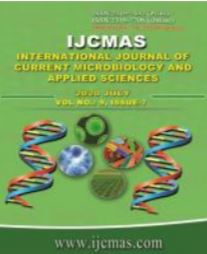


 National Academy of Agricultural Sciences (NAAS)
National Academy of Agricultural Sciences (NAAS)

|
PRINT ISSN : 2319-7692
Online ISSN : 2319-7706 Issues : 12 per year Publisher : Excellent Publishers Email : editorijcmas@gmail.com / submit@ijcmas.com Editor-in-chief: Dr.M.Prakash Index Copernicus ICV 2018: 95.39 NAAS RATING 2020: 5.38 |
The present day era is marked by globalization and advancement in technology which are the main driving forces of change and challenges in the socio-economic, environmental and technological landscapers. To meet the challenges of 21st century ‘Metacognition’ has been recognized as a critical skill to thrive and help students to succeed in their classroom and beyond. At its core, metacognition is a basic survival strategy, since it involves self-reflection on one’s current position, future goals, potential actions and strategies. Thus, metacognition plays an important role in learning and achievement. It helps students in optimizing their problem solving experience by being aware of how one is engaging with the process of learning, interpreting the task at hand as well as what strategies are being selected and employed in achieving learning goals. With this thought of pursuit in mind the present study was conducted to investigate the relationship between the ‘Metacognition and Learning Environment’ among adolescents. The sample for the study was collected from the adolescents (aged 16-18 years) studying in the randomly selected Government Senior Secondary schools of Ludhiana and Moga districts of Punjab. Metacognitive Awareness Inventory (MAI) developed by Schraw and Dennison (1994) was used to investigate ‘Metacognition’ among adolescents along with its components and sub-components. Whereas, Dundee Ready Education Environment Measure (DREEM) developed by Roffet al (1997) was adapted for the purpose of assessing the student perceptions of their ‘Learning Environment’. The findings of the study revealed that the ‘Regulation of Cognition’ component of metacognition and the overall metacognition were significantly and positively correlated with the ‘student perceptions of learning’ as well as ‘student perceptions of atmosphere’ dimensions of the Learning Environment. However, ‘Knowledge of Cognition’ component of metacognition and the overall metacognition were significantly and positively correlated with the ‘student academic self-perceptions’ dimension of Learning Environment. Thus, the results suggested that it was important to develop metacognitive skillfulness among students through intentional methods for enhancing their learning experiences and elevating students to a level of thinking beyond their current capabilities.
 |
 |
 |
 |
 |